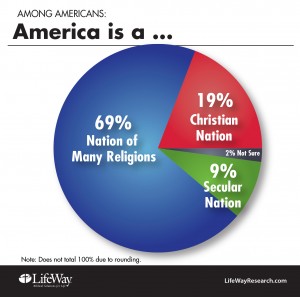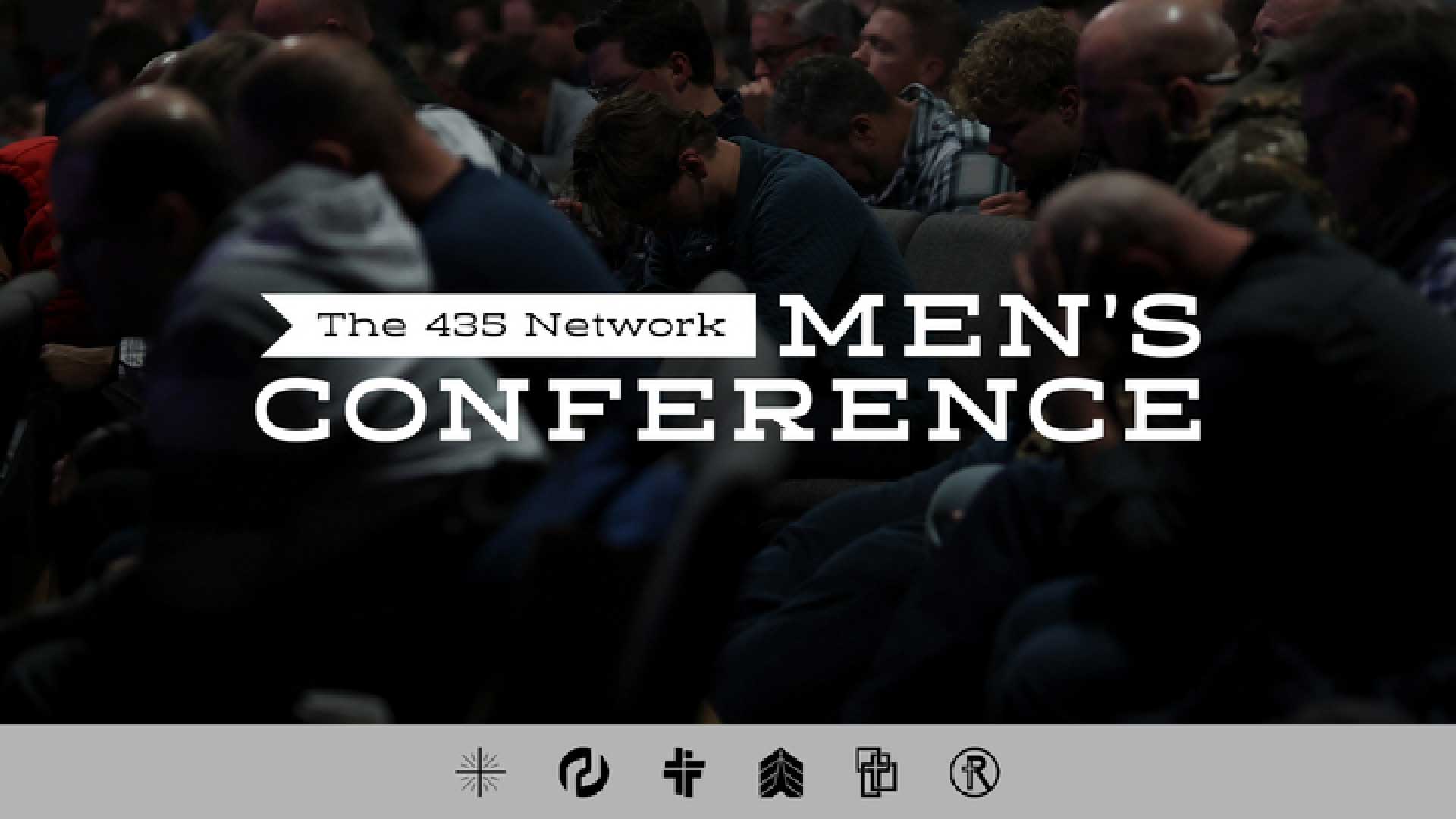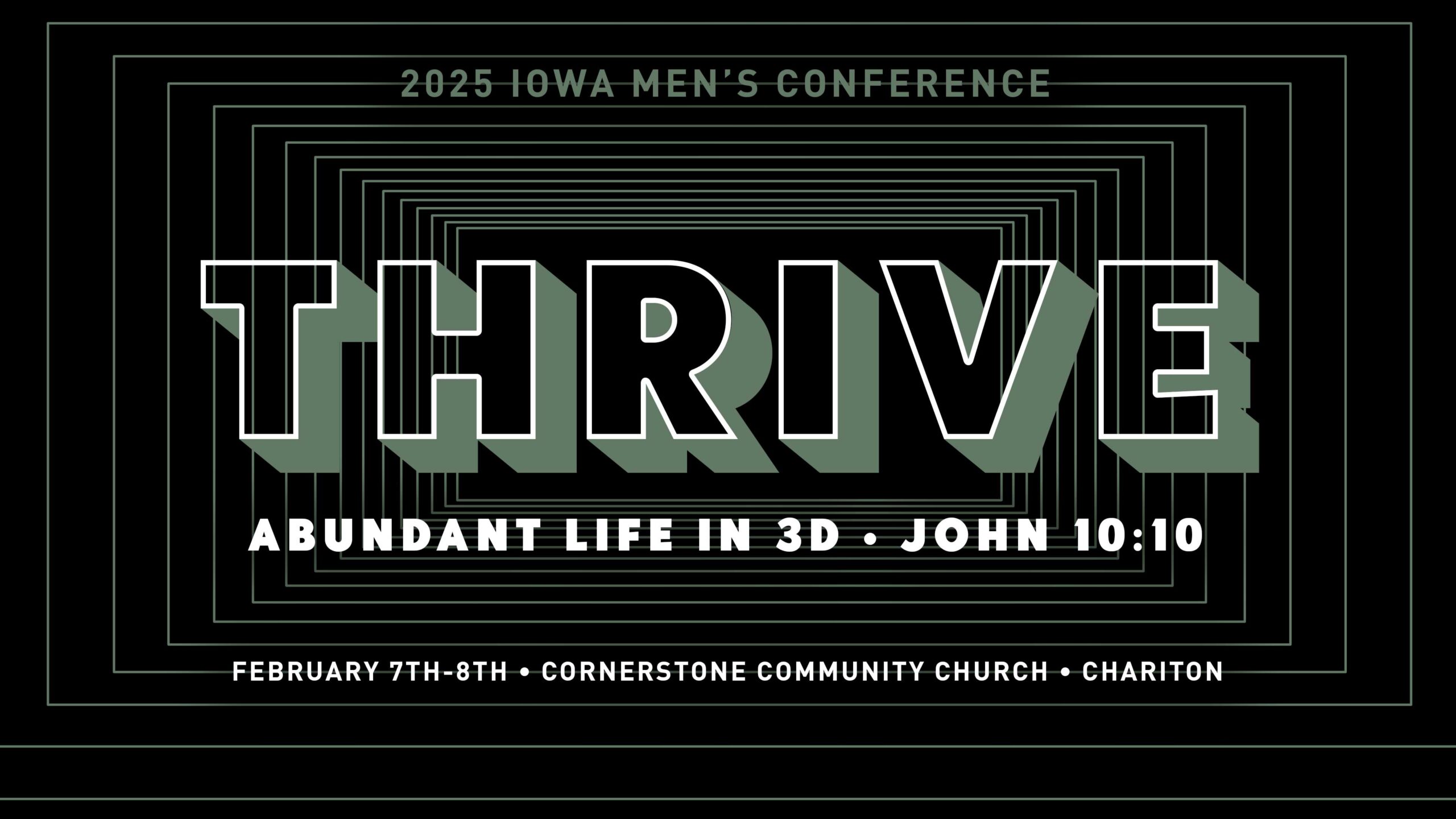by Lisa Cannon Green
NASHVILLE (BP) — Americans believe firmly in religious freedom but think atheists are more welcome than Muslims in the United States, Nashville-based LifeWay Research finds.
More than 90 percent say people should be free to choose and practice religious beliefs. Nearly 7 in 10 call America a nation of many religions.
Yet Americans acknowledge the nation embraces Christians and Jews more heartily than atheists or Muslims. While 92 percent agree America is a welcoming place for Christians and 87 percent agree for Jews, the number drops to 67 percent for atheists. LifeWay released the study Wednesday (July 29), based on a survey taken last fall.
Muslims are the least welcome, in Americans’ estimation. Fifty-seven percent say America is a welcoming place for Muslims, and 35 percent believe it is not.
“Americans are deeply committed to religious liberty, but they can look at today’s culture and see America does not always welcome everyone,” Scott McConnell, LifeWay Research vice president, said. “Welcoming people of all religions means being open to both immigrants of other faiths and citizens who choose to change their beliefs.”
Committed to religious liberty
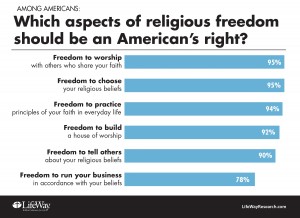 In a phone survey of 1,000 Americans, LifeWay found nearly 9 in 10 (88 percent) believe Americans have religious freedom. Almost all say Americans should be free to choose their religious beliefs (95 percent), worship with others who share their faith (95 percent), practice principles of their faith in everyday life (94 percent), build a house of worship (92 percent), and tell others about their religious beliefs (90 percent).
In a phone survey of 1,000 Americans, LifeWay found nearly 9 in 10 (88 percent) believe Americans have religious freedom. Almost all say Americans should be free to choose their religious beliefs (95 percent), worship with others who share their faith (95 percent), practice principles of their faith in everyday life (94 percent), build a house of worship (92 percent), and tell others about their religious beliefs (90 percent).
Americans are less certain whether owners should be free to run a business in accordance with their beliefs. Seventy-eight percent believe this aspect of religious freedom should be an American’s right. The rate falls to 64 percent among the nonreligious. The issue has been in the public eye recently as courts consider whether businesses can decline to participate in same-sex ceremonies or opt out of paying for employees’ birth control.
“Americans almost universally agree on what religious freedom means until it impacts other freedoms,” McConnell said. “Freedom to share one’s religious beliefs is a given, but some hesitate to protect business owners in the practice of their beliefs.”
Most Americans see their country as a land of religious diversity. Small segments believe America is a Christian nation (19 percent) or a secular nation (9 percent). Both are dwarfed by the 69 percent who view America as a nation of many religions.
“Debate about whether America is a Christian nation will continue,” McConnell said. “Although most Americans are Christians, they understand a nation founded on principles of religious freedom will be a nation of many faiths.”
Belief that America is a Christian nation does not rise above 1 in 4, even among the groups most likely to hold that view –Southerners (25 percent), people 55-64 years old (25 percent), and evangelicals (24 percent).
Nevertheless, more than 70 percent of Americans indicate a Christian religious preference, according to Pew Research. Non-Christian groups are tiny in comparison — atheists (3 percent), Jews (2 percent) and Muslims (1 percent). The Christian and Jewish shares of the U.S. population have been dropping, however, while the atheist and Muslim segments are increasing.
Unequally welcome
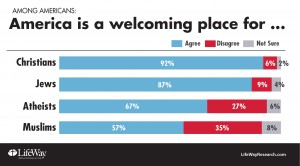 Americans are uncertain whether the growing Muslim population will be welcome. Unease has surfaced in widespread disputes over mosque construction and in a recent U.S. Supreme Court decision that Abercrombie & Fitch could not refuse to hire a Muslim woman because of her head scarf. In previously released surveys, LifeWay Research found more than a third of Americans see Islam as a threat to religious freedom and worry about Sharia law, an Islamic legal and moral code, being applied in the United States.
Americans are uncertain whether the growing Muslim population will be welcome. Unease has surfaced in widespread disputes over mosque construction and in a recent U.S. Supreme Court decision that Abercrombie & Fitch could not refuse to hire a Muslim woman because of her head scarf. In previously released surveys, LifeWay Research found more than a third of Americans see Islam as a threat to religious freedom and worry about Sharia law, an Islamic legal and moral code, being applied in the United States.
Christians are more likely than nonreligious Americans to believe Muslims are welcome, according to the LifeWay survey. Among atheists, agnostics, and those with no religious preference, fewer than half (47 percent) say America is a welcoming place for Muslims. In contrast, 6 in 10 Christians believe Muslims are welcome, a viewpoint held most strongly by Catholics at 68 percent.
Most people of faith also believe atheists are welcome in America, but the nonreligious themselves are less likely to agree. Two-thirds (67 percent) of Christians and 78 percent of those in other religions say America is a welcoming place for atheists, but that view is shared by only 62 percent of the nonreligious.
Younger Americans are the age group most likely to see America as a welcoming place for both Muslims and atheists. Among 18- to 24-year-olds, 64 percent say America welcomes Muslims, and 79 percent say the same for atheists. Regarding Christians and Jews, however, young adults are not significantly more likely than the rest of the population to view America as a welcoming place.
Senior citizens, in contrast, are less likely to believe America welcomes anyone. Fewer than half (46 percent) of those 65 and older think the nation welcomes Muslims or atheists. And while a sizeable majority of older Americans believe the nation welcomes Christians (90 percent) and Jews (82 percent), the viewpoint is less common than among the population as a whole.
“Millennials grew up in a culture more diverse than the one their parents and grandparents knew,” McConnell said. “While many older Americans think Muslims and atheists are not welcome here, young Americans view their country as a place welcoming to all.”
Methodology: The phone survey of Americans was conducted Sept. 19-28, 2014. The calling utilized random digit dialing. Sixty percent of completes were among landlines and 40 percent among cell phones. Maximum quotas and slight weights were used for gender, region, age, ethnicity, and education to more accurately reflect the population. The completed sample is 1,000 surveys. The sample provides 95 percent confidence that the sampling error does not exceed plus or minus 3.4 percent. Margins of error are higher in sub-groups. Those labeled evangelicals consider themselves “a born again, evangelical, or fundamentalist Christian.”
Lisa Cannon Green is senior writer for “Facts & Trends” magazine.
Reprinted from Baptist Press (www.baptistpress.com).
Baptist Press (BP) is the official news service of the Southern Baptist Convention and provides news to the 42 state Baptist papers. BP reports on missions, ministry and witness advanced through the Cooperative Program and on news related to Southern Baptists’ concerns nationally and globally.

